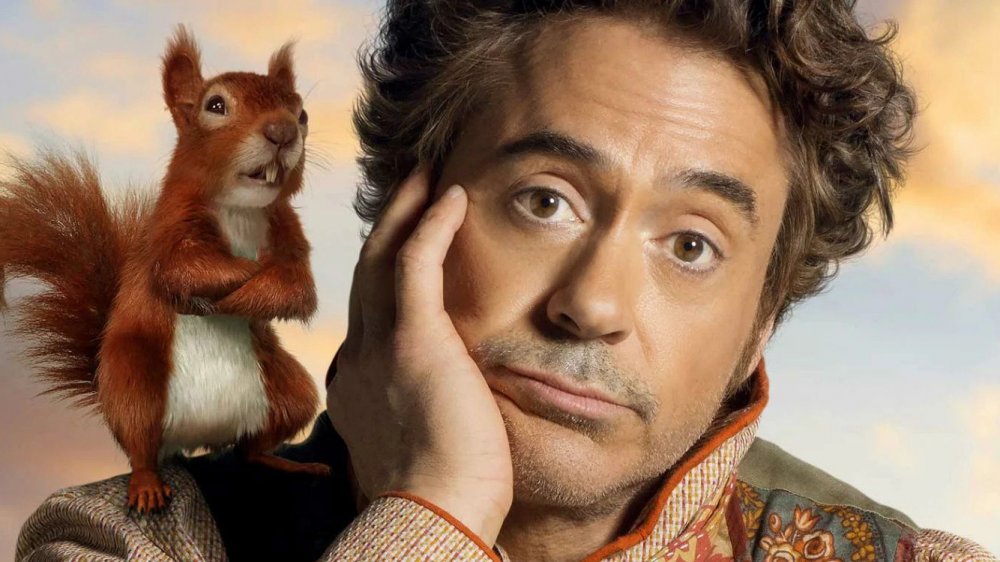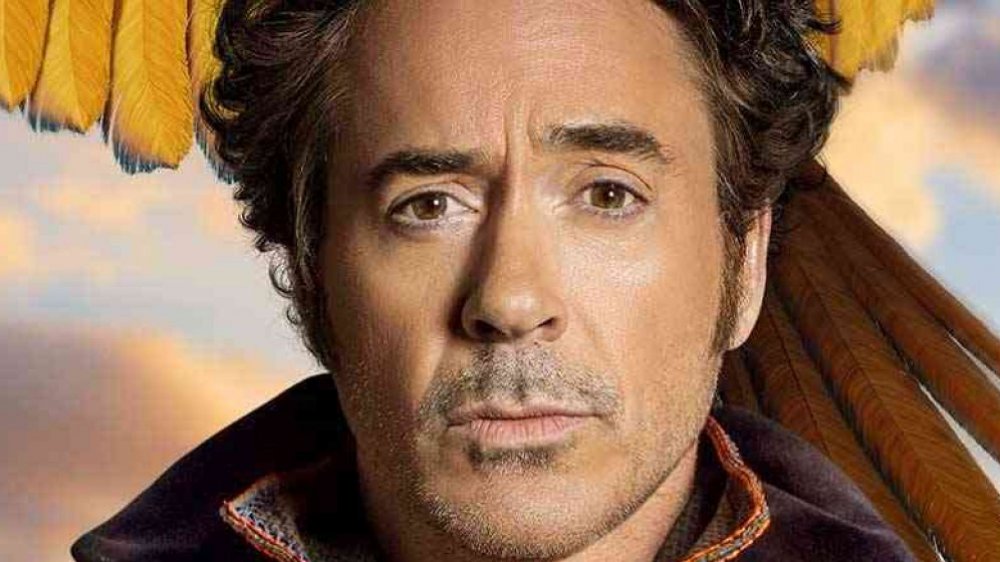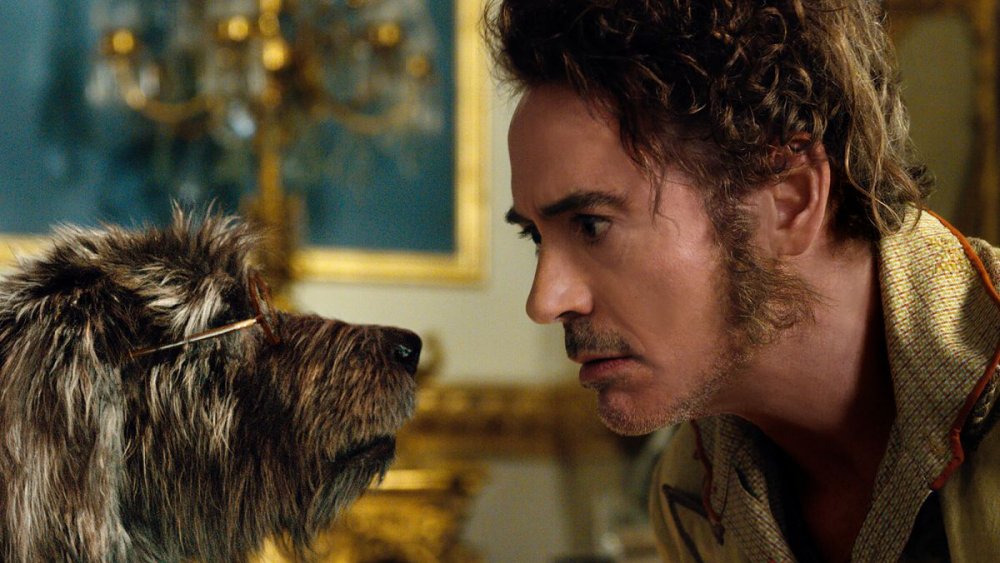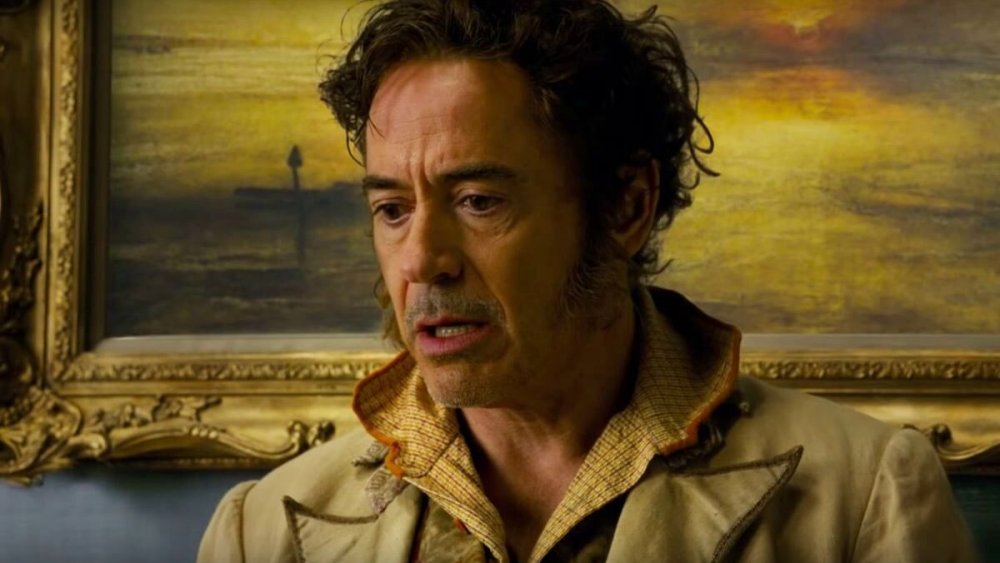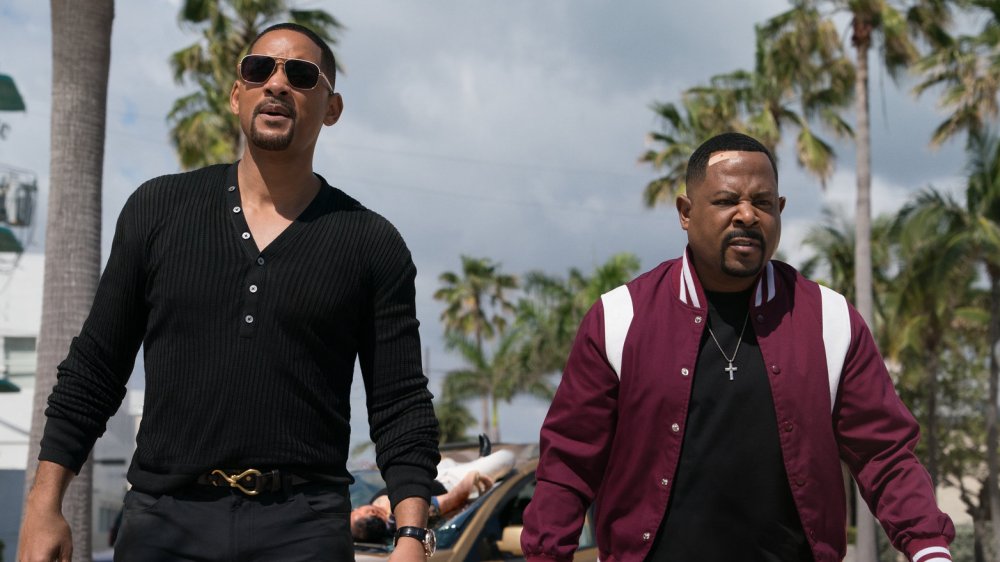Why Dolittle Bombed At The Box Office
Robert Downey, Jr.'s first starring vehicle since ending his tenure in the Marvel Cinematic Universe didn't quite set the box office on fire.
In fact, Dolittle — a new take on that classic childrens' character who talks to the animals — is shaping up to be one of the biggest bombs of 2020, and it's only January. Making matters worse for studio Universal, the flick comes hot on the heels of its Broadway adaptation Cats, which closed out 2019 as one of the biggest money losers of that year; perhaps the studio just needs to stay away from films involving talking animals.
It was hoped that Dolittle would kick-start a new family franchise, but even Downey's charisma and star power couldn't save the film from its fate. Its opening four-day total (including the MLK holiday) came in at just under $60 million worldwide, and while that's respectable for a January release, Dolittle had to do much, much better to have a solid chance of breaking even (via Deadline). The movie was budgeted at an eye-watering $175 million dollars, and for reasons we'll get into momentarily, it likely ended up sporting a much heftier price tag than that.
On paper, the film looked like a winner: Downey in the lead, an all-star cast including the likes of Rami Malek, Octavia Spencer, and Tom Holland voicing all of those adorable animals, and an Oscar-winning writer/director in Stephen Gaghan. So, why did Dolittle flop so spectacularly at the box office?
Dolittle required extensive reshoots
The first signs of trouble came when Dolittle, after its initial test screenings, was found to be in need of heavy reshoots by Universal. In order to better connect with family and overseas audiences, the studio decreed that the flick was in dire need of more talking animals, more slapstick comedy, and (if the critics are to be believed) a whole heck of a lot more fart jokes.
For undisclosed reasons, Gaghan did not return for these reshoots. Instead, the studio tapped Chris McKay (The Lego Batman Movie) and Jonathan Liebesman (Teenage Mutant Ninja Turtles) to shoot the new footage, which almost certainly pushed the movie's final budget well north of $200 million.
Now, in and of itself, the fact that a major film like Dolittle underwent reshoots isn't necessarily cause for alarm; nearly all higher-budgeted Hollywood productions go through a round or two of reshoots for one reason or another. In Dolittle's case, though, it spelled about six different kinds of trouble. The film's reshoots weren't aimed at simply picking up additional takes or new scenes necessitated by slight tweaks to the story, as is typical; instead, they were aimed at correcting what the studio saw as systemic problems with the film (via Wall Street Journal). The fact that new directors were brought in was sure to bring about a slight case of the old tonal whiplash in even the best-case scenario, which this wasn't. Not only did the reshoots push the flick's budget into the stratosphere, they delayed its release by nine months, and foreshadowed a troubling fact: Universal wasn't quite sure who it was making this movie for.
Dolittle had no clear audience
Gaghan is a fine writer and director, but the fact that he was hired for Dolittle only serves to illustrate that this was a film conceived with no clear audience in mind. His previous credits didn't even approach the realm of family-frendly; his stock in trade is wrenching dramas like Syriana and Traffic and crime dramas such as Abandon and Havoc.
It was Gaghan's cut of the film that went over like a lead balloon at those test screenings, and Universal's attempt to course-correct by bringing in McKay and Liebesman to ramp up the silliness was obviously the wrong move. The film arrived in theaters as a tonal mishmash, sporting a "grand adventure for the adults and fart and poop jokes for the kids" aesthetic that ultimately failed to win over either audience.
To make matters worse, the film debuted in January, a traditional dumping ground for flicks that studios know nobody is going to want to see. This, coupled with its troubled production history, caused critics to view it with suspicion before they even set foot in the theater — and once they did, those suspicions were confirmed.
Dolittle received savage reviews
Poor critical notices aren't always a determining factor for tentpole films, but in the case of Dolittle, it's hard to make the case that the film's reviews didn't punch some cannonball-sized holes in its hull. Critics weren't just unkind; they were absolutely brutal, as summed up by the words of NPR's Scott Tobias. "Dolittle is not a film. Dolittle is a crime scene in need of forensic analysis," he wrote. "Something happened here. Something terrible. Something inexplicable. Watching the film doesn't tell the whole story, because it doesn't behave like the usual errant vision, which might be chalked up to a poor conceit or some hiccups in execution. This one has been stabbed multiple times, and only a thorough behind-the-scenes examination could sort out whose fingerprints are on what hilt."
Even the flick's positive notices offered only backhanded praise, meaning that the all-important word of mouth leading up to its release — which, again, becomes even more important in the cinematic wasteland that is January — was not just poor, but toxic. Consider that, as of this writing, Dolittle stands at 19% on Rotten Tomatoes; the seemingly universally reviled Cats, which is swiftly becoming synonymous with "unbelievably ill-conceived fiasco," sits at 20%.
If Dolittle had opened to no competition whatsoever, the damage might have at least been mitigated. But compounding the flick's myriad problems, it had the distinct misfortune of opening against a franchise movie that had no trouble generating word of mouth of a much more positive nature.
Dolittle ran into some Bad Boys
Nobody ever accused the Will Smith/Martin Lawrence buddy cop pictures Bad Boys and Bad Boys II of being high art, and it had been nearly 17 years since the former flick's release. But Bad Boys for Life — which had been in development for years, and which was made without the involvement of franchise director Michael Bay — arrived to surprisingly solid reviews, and built a strong pre-release buzz which resulted in it overperforming wildly. The modestly-budgeted flick notched an opening frame in excess of $100 million, the second-best MLK Day weekend showing in history (via Deadline).
The surprise smash all but sealed the box office fortunes of Dolittle, which will now have to put up an unreasonably strong overseas performance to even come within shouting distance of breaking even. It's a stunning reversal of fortune for Downey, who went from starring in the highest-grossing film of all time — last year's Avengers: Endgame — to a film that will be remembered as a towering flop, if it's remembered at all.
Fortunately, the star has the Sherlock Holmes franchise (which has a third installment coming in 2021) and those mountains of charisma to fall back on. Here's a bit of advice for every major movie studio, courtesy of Universal: if you happen to have any movies on your upcoming slate which have anything to do with talking animals, now would be a good time to seriously consider pulling the plug.
